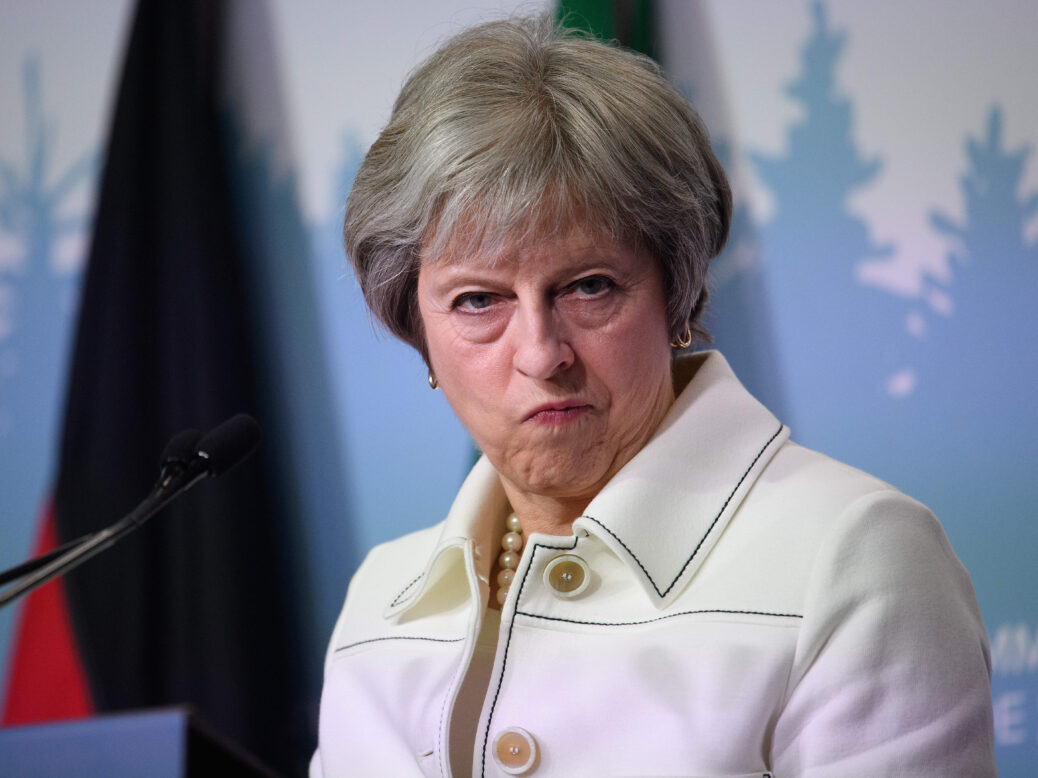
In 24 hours, three pro-Brexit cabinet ministers resigned. Brexit Secretary David Davis resigned. Steve Baker, his deputy at the Department for Exiting the European Union, quickly followed. And at 3pm on 9 July 2018, Boris Johnson, Foreign Secretary also resigned. Many think that this could lead to dissenting Tory MPs challenging Theresa May as leader.
Theresa May’s Chequers proposal for Brexit now looks under threat, and May is potentially facing a threat to her position as Prime Minister. But can she be forced to resign?
Here, George Eaton explains how Conservative leadership challenges work. For the Tories to remove May, Conservative Members of Parliament must undertake a vote of no confidence. At least 15 per cent of the Tories, that is 48, must write a letter to Graham Brady, the 1922 Committee Chair, requesting a vote.
If May wins the majority in following ballot, she will remain in office. She will also have immunity for a year. If she loses, she must resign, which will trigger a leadership contest.
Although there was speculation on Monday that the 1922 Committee had received enough letters, May spoke to the 1922 Committee on Monday night and appeared to have placated at least some Tory MPs for now. As Patrick Maguire points out, trying to remove her is a high stakes game, as failing to do so will drastically limit the hard Brexiteers’ leverage in future.
But if a vote of no confidence was triggered, who would step up as alternative leaders? Talked-about Tory MPs include Jacob Rees-Mogg and Sajid Javid. It has been suggested that May would fight a challenge. Boris Johnson has long been touted as a leader, but Stephen Bush argues that he has made too many enemies on his scramble for power.
May’s allies have faith in her ability to withstand a no confidence vote. Johnson’s unpopularity with David Cameron’s supporters make him unlikely to get the support necessary if he were to run for Prime Minister.
It is unclear whether the resignation of David Davis, and appointment of Dominic Raab as his successor, could lead to a soft or hard Brexit. If May decides to seek support from the opposition parties rather than her own MPs, it seems likely to be a softer one.
As Stephen Bush argues, Brexiteers will only be able to defeat the government’s position with a vote of no confidence, or to vote against a final deal. Both are risky – a vote of no confidence risks an unwanted general election and a vote against the final deal would create an “economic and constitutional crisis.”






